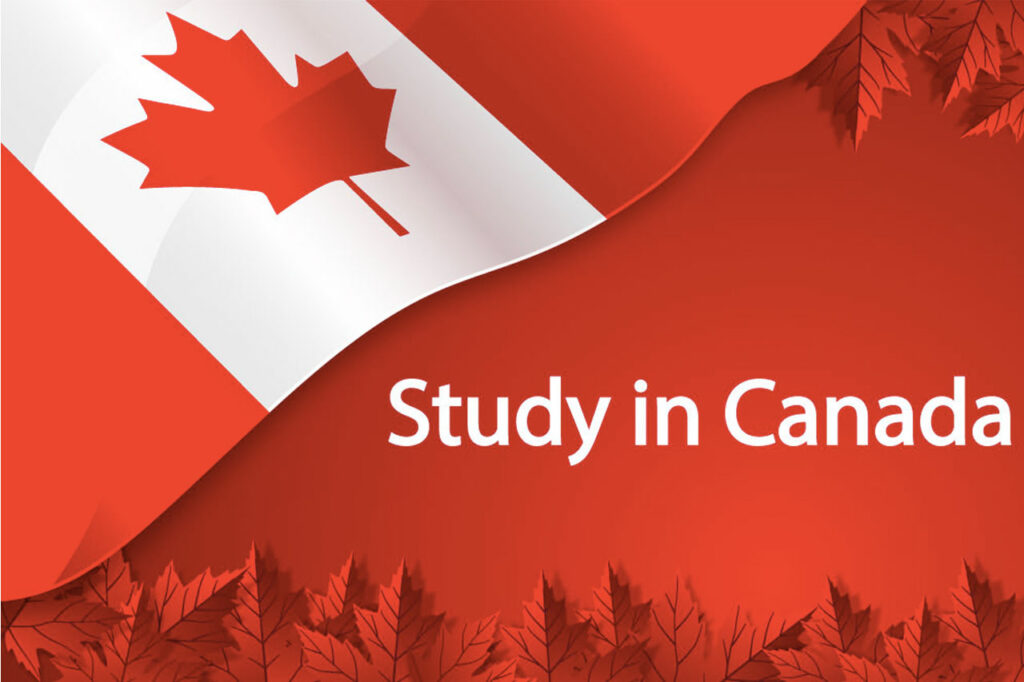
 Study Permit
Study Permit
A Canada study permit is an official document issued by the Canadian government that allows foreign nationals to study at Designated Learning Institutions (DLIs) in Canada. It is important to note that a study permit is not a visa. Depending on your country of residence, you may also need a visitor visa or an Electronic Travel Authorization (eTA) to enter Canada.

To apply for a Canada study permit, you must meet several specific criteria. These include:
You must have an acceptance letter from a Designated Learning Institution (DLI) in Canada. This is one of the most critical documents in your application, and the program you choose must align with your career goals.
You need to show that you have enough funds to cover tuition fees, living expenses for yourself and any family members who accompany you, and return transportation. Bank statements, scholarship letters, or financial support from a sponsor are some of the ways you can prove this.
You must convince the immigration officer that you genuinely intend to study in Canada and will leave the country when your study permit expires. This is particularly important for students from Nigeria, Ghana, India, and Cameroon, as proving ties to your home country is critical.
A police clearance certificate may be required to show that you have no criminal record, especially for students applying from Nigeria and India, where this is commonly requested.
Some students may need to undergo a medical examination to ensure they are in good health before being granted a study permit.
Now that you understand the key requirements, here are practical tips to help you improve your chances of getting a Canada study permit:
Select a Designated Learning Institution (DLI) that is recognized by the Canadian government and eligible for the Post-Graduation Work Permit (PGWP). This can be beneficial if you plan to work in Canada after completing your studies.
Example for Nigerian Students: “Nigerian students often prefer institutions like the University of Toronto and McGill University, which offer excellent programs and are DLI-certified.”
Ensure your application is complete, accurate, and well-organized. Pay close attention to the following documents:
Proving that you will return to your home country after your studies is essential. You can do this by showing ties such as:
Honesty is crucial throughout the application process. Any discrepancies or false information can lead to a refusal or a five-year ban from applying for any Canadian visa. Ensure that all documents are accurate, especially when providing financial proof.
Processing times for Canada study permits can vary, especially in countries with high application volumes like Nigeria and India. Applying early gives you ample time to address any issues that may arise during the process.

Here’s a step-by-step guide to help you navigate the Canada study permit application process:
Step 1: Obtain an Acceptance Letter
Make sure you receive an acceptance letter from a DLI in Canada. Institutions like McGill University, University of Toronto, and University of British Columbia are popular choices for students from India and Ghana.
Step 2: Gather Required Documents
Prepare all the necessary documents, including:
Step 3: Complete the Application Form
Fill out the study permit application form accurately. Double-check all information to avoid any mistakes that could delay your application.
Step 4: Pay the Application Fee
Pay the non-refundable application fee and keep the receipt as proof of payment. This step is critical for ensuring your application is processed smoothly.
Step 5: Submit Your Application
Submit your application online through the Immigration, Refugees and Citizenship Canada (IRCC) website or at a Visa Application Center (VAC) in your home country. Keep a copy of your application for your records.
Step 6: Provide Biometrics
Depending on your nationality, you may need to provide biometrics (fingerprints and a photograph) at a VAC. This step is essential for applicants from Nigeria, Ghana, India, and Cameroon.
If your application is refused, review the refusal letter carefully. Common reasons for refusal include insufficient funds, lack of ties to your home country, or an unclear study plan. Make sure to address these issues and reapply with a stronger application.
Delays in processing can be frustrating, especially for students from India and Nigeria where high volumes of applications are submitted. Ensure your application is complete and all documents are submitted correctly to avoid unnecessary delays.
Applying for a Canada study permit from Nigeria, Ghana, India, or Cameroon requires careful planning and preparation. By choosing the right institution, preparing a strong application, and proving your financial capability and ties to your home country, you can significantly improve your chances of success. Make sure to apply early, provide accurate documents, and follow all guidelines.
Need help with your application? Contact SayHomeCanada today for personalized assistance with your Canada study permit application.

To improve your chances of success when applying for a Canada study permit from Nigeria, ensure you have a valid passport, an acceptance letter from a Designated Learning Institution (DLI), proof of financial support, and a well-written statement of purpose.
Proving financial capability is crucial. Ghanaians can provide bank statements, letters of financial support, or scholarships as proof. Ensure you meet the minimum financial requirement for your tuition, living expenses, and return travel.
The statement of purpose (SOP) is very important. Indian students should explain why they want to study in Canada, how the program aligns with their career goals, and what their plans are after completing their studies.
Yes, students from Cameroon can apply for a Post-Graduation Work Permit (PGWP) after completing their studies at a DLI. This permit allows you to work in Canada for up to three years and can be a pathway to permanent residency.
Processing times vary based on the Visa Application Center (VAC) and the number of applications. For students from Ghana, it can take anywhere from several weeks to a few months. To avoid delays, ensure your application is complete and all required documents are included.
Thank you for the response .
Let's Connect